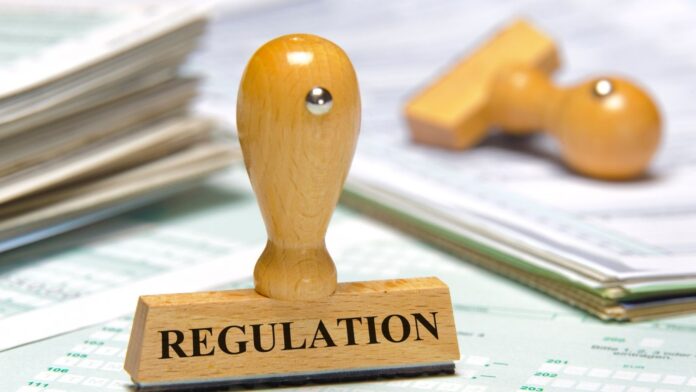In Which Situation Would Government Regulation Most Likely Be Necessary
In certain situations, government regulation becomes necessary to ensure the smooth functioning of various sectors and protect the interests of the public. While market forces often drive innovation and economic growth, there are instances where external intervention is required to address market failures or prevent harmful practices. Government regulation plays a crucial role in safeguarding consumer rights, maintaining fair competition, and promoting public safety.
One scenario in which government regulation might be necessary is when dealing with environmental issues. Industries that release pollutants into the air or water can cause severe harm to ecosystems and human health. In such cases, regulations help limit emissions, enforce proper waste management practices, and encourage sustainable alternatives. By imposing strict guidelines on industries and monitoring their compliance, governments can mitigate environmental damage and work towards a more sustainable future.
Another area where government intervention may be needed is in ensuring public health and safety. For instance, pharmaceutical drugs must pass rigorous testing before they can be marketed to the public. Government agencies set standards for drug efficacy, safety, and labeling to protect consumers from potentially harmful substances. Similarly, regulations exist for food safety standards to prevent contamination or adulteration that could pose risks to human health.
Environmental Protection
Pollution Control Measures
When it comes to environmental protection, government regulation is often necessary to implement pollution control measures. These measures are crucial in mitigating the harmful effects of pollutants on our environment and public health. Government intervention ensures that industries and individuals adhere to specific standards and regulations aimed at reducing pollution levels.
One example of pollution control measures is the implementation of emission standards for vehicles. By setting limits on the amount of pollutants released into the atmosphere, such as carbon monoxide and nitrogen oxides, governments can help reduce air pollution and its associated health risks. These regulations also encourage the development and adoption of cleaner technologies, like electric vehicles, which contribute to a greener future.
Another aspect of pollution control is wastewater treatment. Industries generate substantial amounts of wastewater that can contain harmful chemicals and contaminants. Through government regulation, stringent guidelines can be put in place to ensure proper treatment processes are implemented before discharging wastewater into water bodies. This protects aquatic ecosystems from contamination and safeguards drinking water sources.
Threats to Natural Resources
Government regulation becomes necessary when natural resources face significant threats due to human activities or exploitation. Without intervention, these valuable resources could be depleted or irreversibly damaged, resulting in long-term consequences for both our environment and society.
For instance, deforestation poses a severe threat to our forests’ sustainability worldwide. Governments may enact regulations that limit logging activities or establish protected areas to preserve biodiversity hotspots. These measures aim to maintain essential ecological functions provided by forests while allowing sustainable use practices.

Public Health Crisis
In situations where there is a public health crisis, government regulation is most likely necessary to safeguard the well-being of the population. When faced with a significant threat to public health, such as an outbreak of a contagious disease or a natural disaster that poses health risks, government intervention becomes imperative. Here are a few reasons why government regulation is essential during a public health crisis:
- Coordinated response: Government regulations ensure that there is a coordinated and organized response to the crisis. It allows for efficient allocation of resources, such as medical supplies, vaccines, and personnel, ensuring they reach the areas and individuals in need.
- Risk mitigation: Regulations help in mitigating risks associated with the spread of infectious diseases or other health hazards. These measures may include implementing quarantine protocols, travel restrictions, and social distancing guidelines to minimize transmission rates and prevent further outbreaks.
- Public awareness campaigns: Government regulations facilitate the dissemination of accurate information through public awareness campaigns.
- Protecting vulnerable populations: During a public health crisis, certain groups may be more susceptible to adverse effects due to underlying medical conditions or limited access to healthcare facilities.
- Research and development: In times of crisis, government regulations can expedite research and development efforts for diagnostics, treatments, and vaccines by providing funding incentives or streamlining regulatory processes without compromising safety standards.
It’s important to note that while government regulation plays a crucial role during public health crises, it should be implemented judiciously to balance individual rights with collective well-being.


